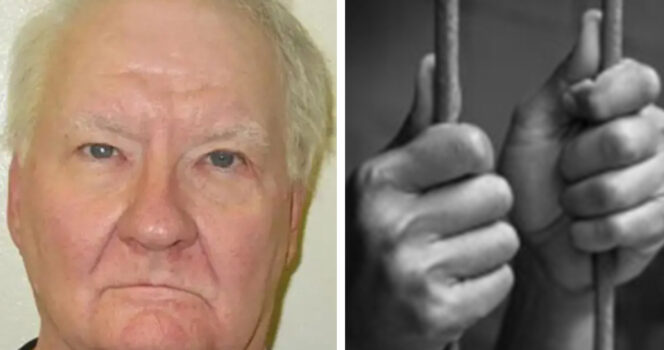
Nearly 30 years into his life sentence, a convicted killer claimed his “sentence had expired” after he briefly died from a medical condition and was revived against his will.
In July 1996, Benjamin Schreiber conspired with a woman to kill her boyfriend, 39-year-old John Dale Terry. Armed with the handle of a pickaxe, Schreiber bludgeoned Terry to death and left his body outside a trailer in Agency, Iowa.
Days later, Schreiber was arrested at his home and in 1997, he was convicted of murder and sentenced to life without the possibility of parole. The then 43-year-old man was imprisoned at the Iowa State Penitentiary, where he would live until his death.
Brush with death
In March 2015, Schreiber’s health took a sudden and life-threatening turn. He began suffering from severe seizures and a dangerously high fever. Rushed to the University of Iowa Hospitals & Clinics, doctors discovered a large kidney stone had led to septic poisoning – a serious, often deadly infection.
While in the hospital, Schreiber lost consciousness. According to NDTV, the killer was declared “clinically dead” for a short time and was revived five times with a combination of epinephrine and other emergency measures. His condition stabilized, and he was eventually returned to prison.
But Schreiber didn’t see his revival as a return to life. He claimed that his temporary death meant he had “fulfilled his life sentence,” the appeals document, completed by Judge Amanda Potterfield on Nov. 6, 2019, notes.
‘Sentence has expired’
In 2018, Schreiber took an unusual legal route: he filed a petition with an appeals court, arguing that his momentary death meant his “sentence has expired” and that the state had no legal right to keep him incarcerated, the New York Times reports.
“He asserts he was sentenced to life without parole, “but not to life plus one day,” court documents, explain.
He further argued that he had been resuscitated against his will. A do-not-resuscitate order had been filed with the Iowa Department of Corrections, and his brother had told doctors not to revive him – yet doctors brought him back anyway.
While he had been unconscious at the hospital, Schreiber’s medical team contacted his brother, who, according to the Times, instructed doctors to ease his pain, “otherwise you are to let him pass.”
This, Schreiber insisted, invalidated his sentence.
‘Appeal is moot’
The argument was bold – but “unpersuasive and without merit,” Judge Potterfield noted in the appeals document.
In a blunt rejection of his argument, the judge wrote that since Iowa law doesn’t define “life,” the court interpreted it in its plain, literal sense – meaning a person convicted of a Class A felony – including murder, treason or espionage – “must spend the rest of their natural life in prison.”
“We do not find his argument persuasive,” Potterfield recorded, adding that it’s unlikely the legislature intended “to set criminal defendants free whenever medical procedures during their incarceration lead to their resuscitation by medical professionals.”
The appeal concludes: “Schreiber is either still alive, in which case he must remain in prison, or he is actually dead, in which case this appeal is moot.”
Final death
After years of failed appeals and no legal recourse left, Schreiber remained in prison until his health declined once again. On April 7, 2023, he died of natural causes at a hospital in Fort Dodge, Iowa. He was 70 years old.
This time, there were no resurrections – just a final end to one of the most surreal legal stories to come out of the American prison system.
What do you think of Benjamin Schreiber’s argument? Please let us know your thoughts and then share this story so we can get the conversation started!
READ MORE
- First woman executed in almost 70 years has haunting goodbye
- “Evil in the flesh” inmate’s chilling final words before execution for triple murder




